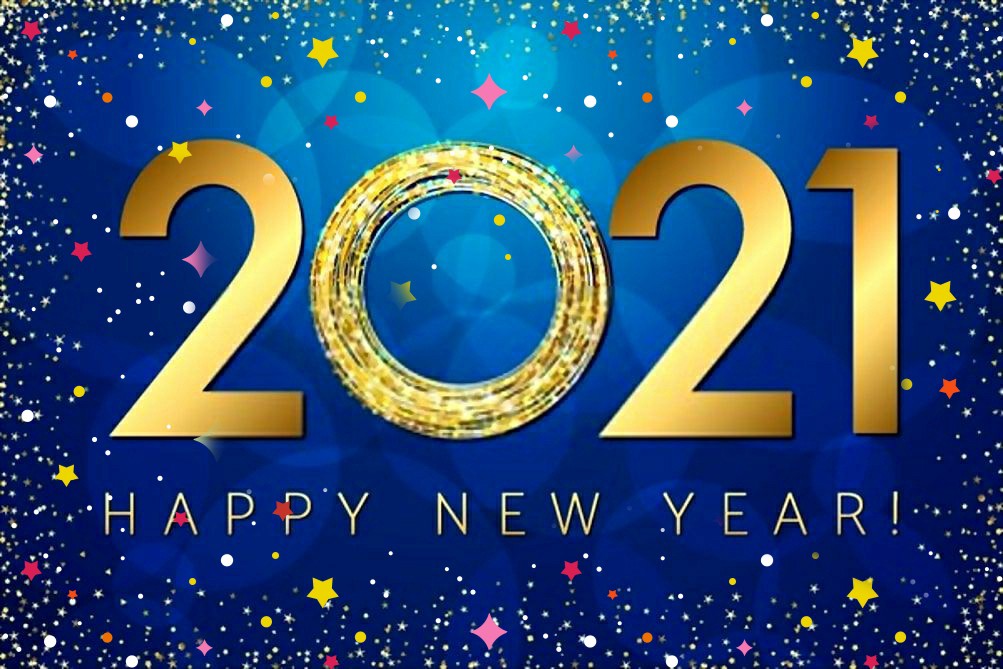Happy New Year , New Year’s, or New Years? the way to Wish
Someone Well in 2021
The last item you would like to stress about when ringing within
the New Year is where to place the apostrophe. Get the nitty-gritty on New Year
, New Year’s, and New Years so you'll make a toast in the dark and obtain your
punctuation right while you’re at it.
When is it “New Year’s”?
Use the apostrophe-S in “New Year’s” when you’re talking
about New Year's Eve or January 1 resolutions you’re making, or other things that
“belong” to the New Year .
Let’s get grammatical. Apostrophes are the way English
language shows possession or that something belongs to a different thing. Here
are the three commonest uses of latest Year:
New Year ’s Eve: the eve of the New Year
New Year ’s Day: the
primary day of the New Year
New Year ’s
resolution: something you say you’re getting to do for the New Year
In all three cases, there’s a relationship of belonging
between the New Year and therefore the noun: the eve, the day, and therefore
the resolution are all specifically associated with the New Year (it’s not just
any resolution), so “New Year’s” becomes the modifier for every noun.
Examples:
“I like getting to
big parties on New Year’s.” (This implies “New Year’s Eve,” so “New Year’s” is
possessive as a shortcut for pertaining to New Year's Eve .)
“I like staying
reception and watching movies on New Year’s Day.” (“New Year’s” usually means
“New Year’s Eve,” and other people usually specify “New Year’s Day” when
they’re talking about January 1.)
“Let’s have New
Year’s brunch.” (The brunch is in honor of latest Year’s Day.)
“My New Year’s
resolution is to recollect where the apostrophe goes in New Year’s.” (The
resolution belongs to the New Year . And now you'll roll in the hay too!)
Also, note that “New Year’s” is capitalized because it’s
pertaining to a vacation or a selected event.
When is it “New Year”?
Here’s what to mention in the dark (and for the primary
couple weeks of January): Happy New Year!
You also say “New Year” with no possessive apostrophe-S when
you’re talking about the year as an entire . “New Year’s” refers to at least
one night, one day, and one resolution (or tons of resolutions—we don’t judge).
But “new year” usually comes up when people are talking generally about the
year, often before it’s begun or when it’s still early within the year.
Examples:
“December is
basically hectic, so let’s get lunch within the New Year .”
“Now that it’s the
New Year , I even have such a lot longer .”
“Happy New Year!”
You capitalize “New Year” when you’re talking about the
vacation or the large day, but not when you’re pertaining to the New Year as a
timeframe.
When is it “New Years”?
New Year’s is that the end of 1 year and therefore the
beginning of another year. There are two years involved—the old one and
therefore the new one—but just one of them is new.
That means you’ll never have the occasion to mention “Happy
New Years.” “Years” is plural, and during this galaxy a minimum of , just one
year happens at a time.
What if you’re talking about new years within the plural?
Here’s one example:
“New years always
give opportunities for reflecting, celebrating, and resolving to try to to
things differently within the future.”
In this case, the topic is multiple new years, or every
single year, a minimum of when it starts. This sentence could even be rephrased
to specialise in the New Year’s holiday: “New Year’s always gives opportunities
for reflecting, celebrating, and resolving to try to to things differently
within the future.”
Note that this version puts the main target on the event of
December 31-January 1, rather than every New Year . This emphasis is more
common. When people mention a celebration over multiple years, a practice every
New Year's Eve , or a generalization about the New Year , the term of choice is
usually “New Year’s.” this is often because in most cases, “New Year’s” may be
a shortcut for “New Year’s Eve,” and therefore the name of the vacation
functions as an adjective.
reater challenges and








0 Comments